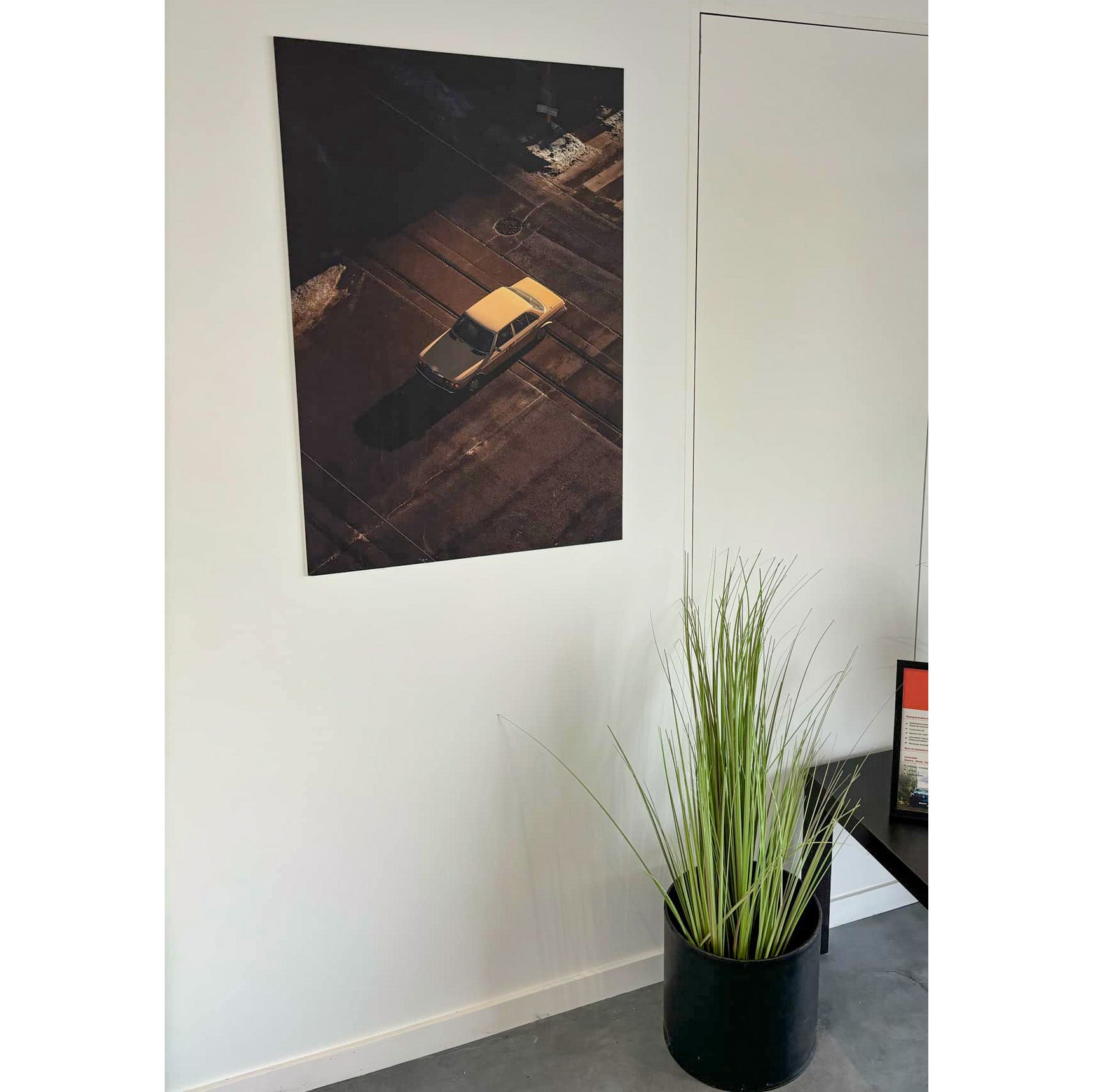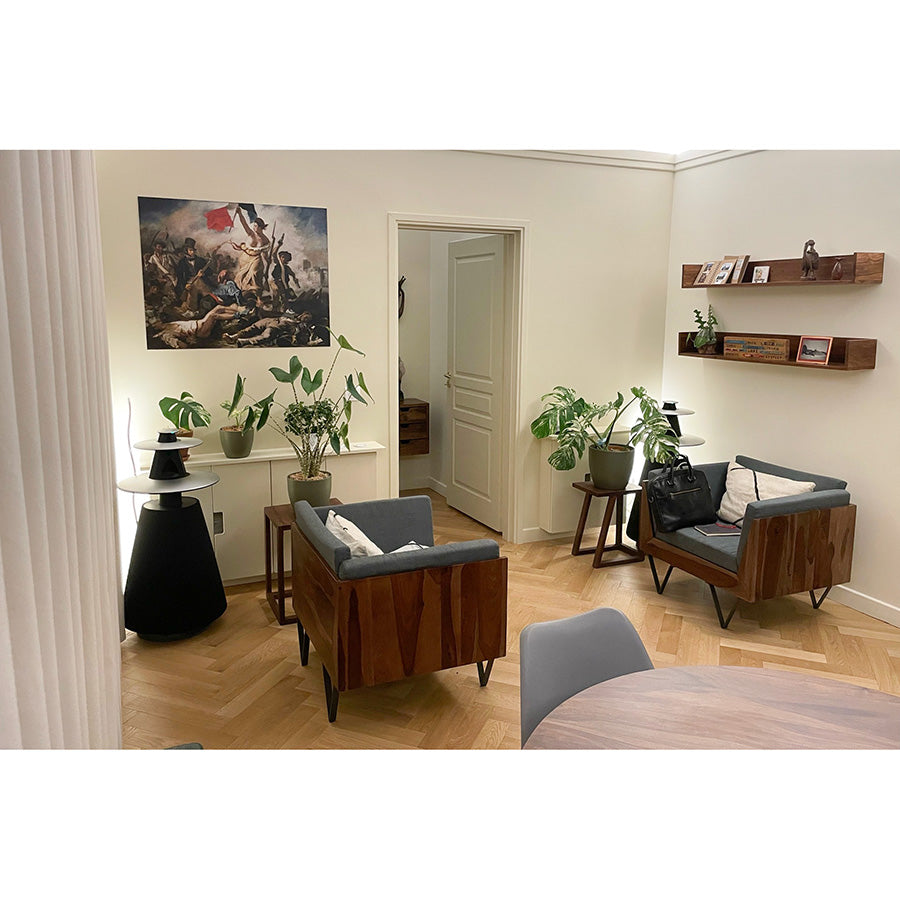Art print | Self-portrait in lamplight - Kristian Zahrtmann


View from behind

Frame (optional)
Kristian Zahrtmann's Autoportrait à la lumière de la lampe is a work that transcends mere representation. In this piece, the Danish artist offers us an immersion into his inner world, at the crossroads between introspection and illumination. The light, a central element of this composition, becomes the conduit of a profound emotion, revealing not only the artist's features but also an atmosphere imbued with mystery and reflection. This painting, both personal and universal, invites the viewer to contemplate not only the face of the artist but also the soul that animates him. Through this art print, one does not merely admire an image but enters into a dialogue with the creator—a timeless conversation between the artist and their audience.
Style and uniqueness of the work
Zahrtmann's style is characterized by an impressive mastery of light and shadow, as well as a rich and nuanced color palette. In this self-portrait, the lamp's light illuminates the artist's face in a way that seems almost supernatural. The play of shadows accentuates the facial features, highlighting the emotions that are depicted. This chiaroscuro technique, inherited from the great masters of painting, gives the work rare psychological depth. The composition, both intimate and dramatic, reflects a moment of solitude—a reflection on oneself, where each brushstroke seems charged with meaning. Zahrtmann, through his unique approach, manages to capture a fleeting instant of human existence, making this art print not only a reflection of his image but also a mirror of the soul.
The artist and his influence
Kristian Zahrtmann, an emblematic figure of the Danish artistic movement of the 19th century, left a mark on his era through an innovative and personal approach to painting. Influenced by Impressionist and Symbolist currents, he distinguished himself by his ability to fuse the intimate with broader themes, exploring questions of identity, sexuality, and spirituality. His work, often autobiographical, bears witness to a constant search for truth and authenticity. Zahrtmann also

Matte finish

View from behind

Frame (optional)
Kristian Zahrtmann's Autoportrait à la lumière de la lampe is a work that transcends mere representation. In this piece, the Danish artist offers us an immersion into his inner world, at the crossroads between introspection and illumination. The light, a central element of this composition, becomes the conduit of a profound emotion, revealing not only the artist's features but also an atmosphere imbued with mystery and reflection. This painting, both personal and universal, invites the viewer to contemplate not only the face of the artist but also the soul that animates him. Through this art print, one does not merely admire an image but enters into a dialogue with the creator—a timeless conversation between the artist and their audience.
Style and uniqueness of the work
Zahrtmann's style is characterized by an impressive mastery of light and shadow, as well as a rich and nuanced color palette. In this self-portrait, the lamp's light illuminates the artist's face in a way that seems almost supernatural. The play of shadows accentuates the facial features, highlighting the emotions that are depicted. This chiaroscuro technique, inherited from the great masters of painting, gives the work rare psychological depth. The composition, both intimate and dramatic, reflects a moment of solitude—a reflection on oneself, where each brushstroke seems charged with meaning. Zahrtmann, through his unique approach, manages to capture a fleeting instant of human existence, making this art print not only a reflection of his image but also a mirror of the soul.
The artist and his influence
Kristian Zahrtmann, an emblematic figure of the Danish artistic movement of the 19th century, left a mark on his era through an innovative and personal approach to painting. Influenced by Impressionist and Symbolist currents, he distinguished himself by his ability to fuse the intimate with broader themes, exploring questions of identity, sexuality, and spirituality. His work, often autobiographical, bears witness to a constant search for truth and authenticity. Zahrtmann also









